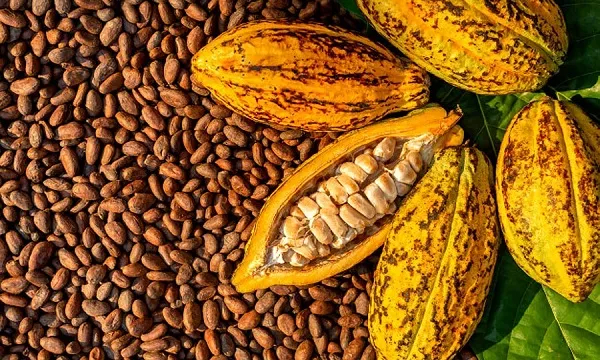COCOBOD: Ghana Pays West Africa’s Highest Farmgate Price for Cocoa

The Ghana Cocoa Board (COCOBOD) has strongly refuted recent claims that cocoa producers in Côte d’Ivoire are better compensated than their Ghanaian counterparts. According to COCOBOD, such assertions are factually incorrect and fail to reflect the current market realities.
In an official statement issued in Accra, COCOBOD clarified what it described as misleading public commentary and media reports regarding cocoa farmgate pricing. The organization emphasized that Ghanaian cocoa farmers currently enjoy the highest producer price in the West African sub-region, reaffirming its dedication to safeguarding farmer welfare and promoting sustainable cocoa production.
Higher Earnings for Ghanaian Farmers
Recent figures from the Commodity Analysis Team’s August 2025 report support COCOBOD’s position. The data shows that Ghana’s official producer price stands at GH¢3,228.75 per 64kg bag, which equates to GH¢51,660 per tonne or approximately $5,040 per metric tonne (MT). In contrast, cocoa farmers in Côte d’Ivoire are receiving GH¢2,553.38 per bag, equivalent to GH¢40,854 per tonne or $3,886/MT.
This pricing structure means Ghanaian farmers are earning an average of GH¢675.38 more per bag, or $64.16, than their Ivorian peers. On a per-tonne basis, the difference is even more striking—GH¢10,806 or $1,154 more in favor of Ghana.
When broken down further, the data shows Ghanaian farmers earn GH¢51.65 ($5.04) for every kilogram of cocoa sold, compared to GH¢40.85 ($3.89) in Côte d’Ivoire. As a result, a typical 64kg bag brings in $315 for Ghanaian farmers, while Ivorian farmers receive just $227.
A Strategic Pricing Policy
COCOBOD stated that these figures clearly demonstrate the competitiveness and fairness of Ghana’s farmgate pricing policy. Contrary to reports suggesting parity—or even a disadvantage—for Ghanaian farmers, the Board insists that the current price structure ensures better returns and reinforces Ghana’s leadership position in the cocoa sector.
“The official price differential tells a clear story,” COCOBOD noted in the statement. “Ghanaian cocoa farmers are receiving over GH¢10,000 more per tonne than their Ivorian counterparts. This is not just a number—it reflects our commitment to farmers’ livelihoods.”
The Board explained that its pricing strategy is also designed to stabilize farmer incomes, especially in the face of volatile foreign exchange rates, which can distort public perceptions about pricing levels between countries. By maintaining high and sustainable local prices, COCOBOD aims to shield farmers from these external shocks and discourage the cross-border smuggling of cocoa beans.
Promoting Quality and Sustainability
Beyond price comparisons, the Board emphasized Ghana’s continued reputation for producing some of the highest-quality cocoa in the world. COCOBOD believes that combining premium pricing with a focus on sustainability and farmer support will help maintain Ghana’s strong position in the global cocoa market.
“Our cocoa remains the global benchmark for quality,” the statement said. “With the highest farmgate prices in the region, we are not only securing better income for farmers but also reinforcing the long-term viability of cocoa farming in Ghana.”
Conclusion
The Ghana Cocoa Board’s response underscores its ongoing commitment to cocoa farmers, ensuring they receive fair compensation for their hard work. By offering the highest farmgate price in West Africa, Ghana is setting a new standard in the region—one that reflects both economic fairness and a broader vision for a sustainable cocoa sector.
As global demand for ethically sourced and sustainably produced cocoa continues to rise, Ghana’s approach may well serve as a model for others to follow.







